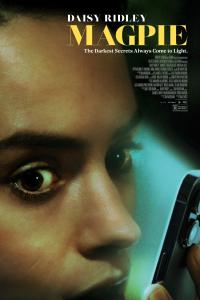Torrent details for "[ambient, electronic, world] (2021) Howie Lee - Birdy Island [FLAC] [DarkAngie]" Log in to bookmark
Controls:
Language:
 English
EnglishTotal Size:
166.30 MB
Info Hash:
7bae30b2a8b846d70a086cc73617051d372981dd
Added By:
Added:
01-06-2021 22:15
Views:
572
Health:

Seeds:
0
Leechers:
0
Completed:
228
Review:
There’s a reason rural escapism in China has risen over the past several years. Millions are drawn to lifestyle vloggers like Li Ziqi and Dianxi Xiaoge, who portray idyllic countryside lives spent creating everything from food to clothing from scratch. There’s even a small but notable group of young people called fanxiang qingnian, who, in a departure from China’s mass rural-to-urban migration of the past four decades, have opted to return to farm life. Of course, Chinese nationalism and the state’s push to promote Chinese culture do play a role, but the fact remains that China’s rapid economic growth, not unlike that of its American counterpart, has left its people wanting something more. On Birdy Island, producer Howie Lee takes this desire and projects it into the future, applying it to the question of what follows society’s collapse under capitalism. The artist imagines a scenario that is by turns dystopic and hopeful, in which a Chinese investment company has decided to fund a theme park aimed at reconnecting people with nature and spirituality. The park is located on a floating island (the album’s namesake), where birds and ancestral spirits commingle. Lee, as a character in this musical metafiction, has been hired to score its soundtrack. In reality, the Beijing producer, née Li Huadi, began piecing together Birdy Island in late 2018, between multiple albums, EPs, and single releases. Since 2011, when he co-founded Do Hits as a club night, and later an independent label, Lee has pushed the bounds of what Chinese electronic music can be. Like much of his work, Birdy Island concerns itself with the social and economic questions of contemporary life in China, while looking to the (admittedly bleak) future. At once fine-grained and expansive, Lee’s work combines traditional Chinese music and historical references with wild electronic experimentation. But where past releases (2020’s 7 Weapon Series, 2019’s Tian Di Bu Ren, 2018’s Natural Disaster) were more abrasive, tongue in cheek, and club-influenced, Birdy Island admits more daylight, often conveyed through washes of ambient sound, even as it continues to cast long shadows. Like many works of science fiction, Birdy Island blurs the line between the natural, supernatural, and man-made. The result feels something like a mash-up of a Daoist landscape painting and Coney Island, situated on Ghibli’s Laputa. There, during the day, feathered life forms announce themselves via digital blips and whoops. At night, bits of industrial debris rattle down alleyways, as if suggesting the presence of unseen forces. On opening track “Time to the Sun,” a tottering medley of machine parts, synthetic owl hoots, and tama-like drum licks gathers in the glow of dawn. An otherworldly voice (belonging to artist and frequent collaborator Yehaiyahan) emerges, singing in Mandarin, “Push open the door of aspiration/Hide the chaos of yesterday […] It is time/To face the sun.” Here, as throughout the album, the human voice serves as a touchstone to both earthly and spiritual worlds. “Wave, Wave, Wave,” for example, follows a jaunty synth-based accordion melody over unstable percussive terrain before resolving into a choral arrangement reminiscent of Daoist temple chanting. Yet while the park attempts to manufacture an experience that provides respite from capitalist destruction, it is also inherently tied to those very forces. As a result, it is impossible to shake a creeping sense of discord. In multiple instances, variations of a lopsided jack-in-the-box motif appear, including one played on what sounds like the dissonant left side of a guzheng (“The Door of Aspiration”). In “Island Birdy,” the trills of a yangqin (Chinese hammered dulcimer) needle over washes of ambient synth as a low, pulsing synth foreshadows the ominous dagu war drumming to come. At other times, Lee taps into easily identifiable sonic tropes, such as “Caribbean” cruise music or video-game soundtracks, to evoke alternate realities (“Feather Signifier”). These constantly shifting settings trigger a sense of disorientation that reflects the strangeness of his elaborate sonic fictions. Despite all of this, the album is not exactly nihilistic. In the end, Birdy Island proposes a kind of hopeful syncretism, reaching back into traditional Chinese spiritual practices and finding a place for them within the destructive wake of neoliberal economics. It is also a documentation of both the beauty and the corruption of a culture that is sometimes romanticized, frequently villainized, but always human.

Track Listing:
01 - 光阴向太阳(Time to the Sun)
02 - 羽毛能指 (Feather Signifier)
03 - 波、波、波 (Wave, Wave, Wave)
04 - 域外花 (Foreign Flowers)
05 - 岛鸟(Island Birdy)
06 - 鸟岛 (Birdy Island)
07 - 神往的门 (The Door of Aspiration)
08 - 偶像的黎明 (Dawn of the Idols)
Media Report:
Genre: ambient, electronic, world
Format: FLAC
Format/Info: Free Lossless Audio Codec, 16-bit PCM
Bit rate mode: Variable
Channel(s): 2 channels
Sampling rate: 44.1 KHz
Bit depth: 16 bits















































